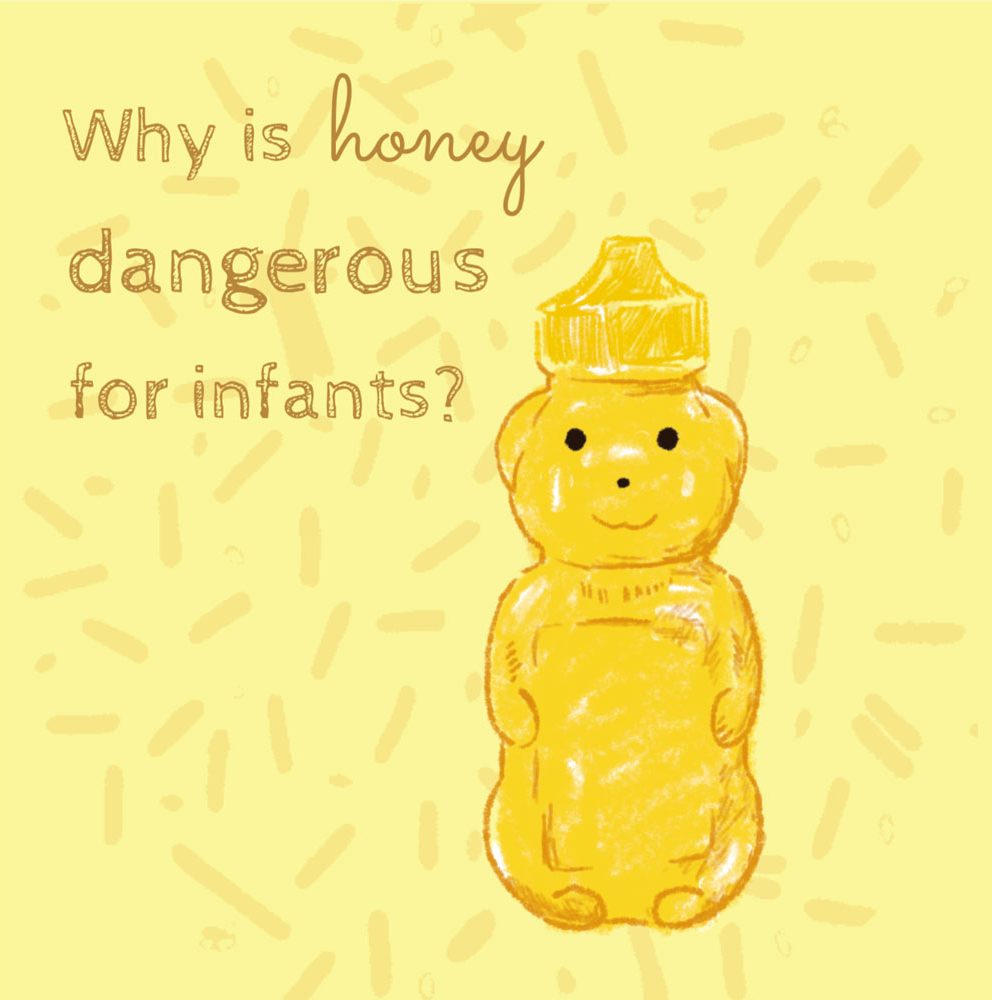
Written by Nadia Siddique
Illustrated by Rebecca Michaels-Walker
Honey is often known as liquid gold, and for good reason. It’s touted for its medicinal properties in many cultures – some exaggerated, and others with some basis in reality. It never spoils, contains antioxidants, and can be used topically for many skin conditions. Manuka honey in particular has shown promising results in clearing up chronic wound infections and could even possibly kill drug-resistant bacteria found in cystic fibrosis patients! Based on this information, shouldn’t honey be generally be safe for consumption?
Not exactly. Many well-meaning parents may feed their infants honey to treat coughs or replace sugar in homemade baby food. However, this can have dire consequences, as honey can cause a rare but serious form of food poisoning called infant botulism. Honey sometimes contains Clostridium botulinum spores, which grow into bacteria that multiply in the gut and produce neurotoxins. These neurotoxins can cause symptoms such as constipation, muscle weakness, poor head control, difficulty breathing, and even respiratory failure. And, though it’s easy to assume heating honey before consumption makes it safer for infants, the spores are actually resistant to heat!
Botulinum toxins are deadly for everyone, but the reason why honey is safe to consume in older children and adults is that they have mature digestive systems that contain more “good bacteria”. This bacteria moves the botulism spores along before they can grow and release toxins. Infants, on the other hand, do not yet have mature digestive tracts and therefore cannot digest honey quickly. Because of this, even a little honey can make them extremely sick. Unfortunately, other sources of Clostridium botulinum do exist and aren’t so easily avoided, but it is still important that physicians warn expecting parents about the dangers of honey. Luckily, there is treatment for botulism, in the form of an antitoxin. Early administration is key in preventing death, and mechanical ventilation may be necessary in severe cases as well.
Interestingly, the neurotoxins from Clostridium botulinum have some practical uses, including being a main ingredient in Botox!
Sources:
- https://www.who.int/news-room/fact-sheets/detail/botulism
- https://www.ncbi.nlm.nih.gov/pmc/articles/PMC3448763/
- https://www.sciencedaily.com/releases/2019/05/190529131142.htm
- https://nationalpost.com/health/infant-botulism-cases-spike-in-canada-why-you-shouldnt-feed-babies-honey